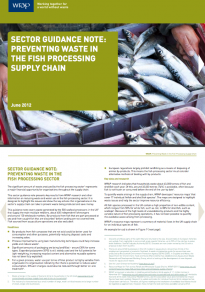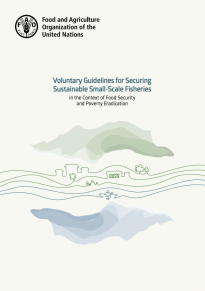Supportive Policy Environment for Artisanal Fish Salting
Policy should aim create an environment which enables the uptake of appropriate technology, good practices and improve access to infrastructure, services, and markets which minimise food loss and waste (FLW) in artisanal fish salting. Examples include encouraging the development of purpose built processing facilities which cater for the gendered needs of users, investment in upgrading the skills and knowledge of processors, and facilitating access to affordable credit for investment in improved technology and equipment.
Many processors involved in artisanal fish salting operate as small/medium scale (SME) enterprises. Policy that supports the sustainable growth of such businesses is likely to encourage the use of improved appropriate technology, improved hygiene and handling standards which contribute to a reduction in FLW.
Key Publications
Preventing Waste in the Fish Processing Supply Chain Included are key results from WRAP research on reducing waste and water use in fish processing, and highlights issues and key actions that supply chain organisations can take to prevent waste and save money. |
| |
Value-addition and SME’s: raison d’etre and lessons learnt This document describes work undertaken in Africa to support small and medium-sized enterprises, and to reduce food waste losses, in regards to fish product. | ||
|
The Voluntary Guidelines for Securing Sustainable Small-Scale Fisheries in the Context of Food Security and Poverty Eradication (the SSF Guidelines) is the first internationally agreed document dedicated completely to the small-scale fisheries sector. |
More Resources
More Resources
31 October 2023














